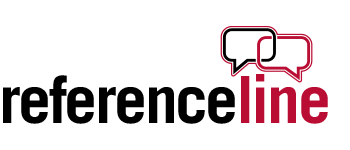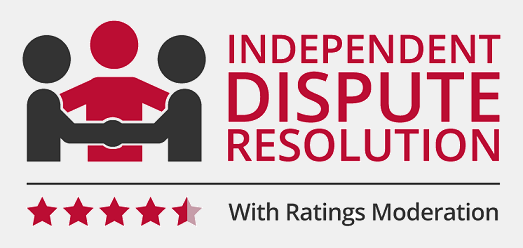Complaints
Nobody's perfect ... and that includes customers!
Misunderstandings arise and some disagreements are inevitable. Firms will sometimes face criticism from customers with 'unreasonable' expectations or complaints which, with the best will in the world, they are unable to resolve. Consumers should welcome a firm's honesty in publishing complaints as well as praise and should place more value on a consistent pattern of reviews with few complaints rather than a small number of 'selective' references with no complaints.
Referenceline's role
We are not responsible for settling disagreements between firms and their customers, but we will take reasonable steps to encourage the resolution of any complaints. If we receive a form with any rating of 3 or less, we will send a copy of that form to the firm concerned.
We will defer publication of the form:
In any case: for 10 days. If the customer tells us that they are satisfied that the firm intends to resolve their complaint beyond the 10 days, then we will continue to withhold publication of the form. If the complaint is referred to an independent third party, such as an Ombudsman or the Courts, then we will continue to withhold publication of the form. If the complaint has not previously been raised with the firm then we reserve the right to extend this period at our absolute discretion. If the customer sends us a replacement review, then we will publish this. If we do not receive a replacement review, then we will publish the original. We may contact the customer if we feel it is appropriate to do so.
Other
We are not obliged to analyse every review in depth, but we will not knowingly publish any feedback which we, at our sole discretion, consider inappropriate (e.g. abusive, personal, obscene, offensive or threatening). We may publish a moderated (edited) version of the review, in which case we will make it clear how the review has been revised. We will not enter into correspondence about this. We will send a form or email link to any customer that tells us they have not been able to obtain a form or email link directly from the firm and we may contact them for more information. We will contact the firm and, if we are not satisfied by their explanations then we may, at our sole discretion, take other appropriate action.The customer's role
Customers should first raise their complaint with the firm, following any reasonable complaints procedure used by the firm and by any scheme or professional body of which the firm is a member. Concerns must be expressed in a constructive way, giving the name of the person with whom the issue has been discussed and preferably suggesting how the problem might be avoided in future. Website users need to know that complaints will be published in order to have confidence in the overall results, but complaints and comments on replacement forms should fairly reflect the facts and the firm's efforts to deal with the complaint.
Naming and Shaming
Some firms (or even consumers and journalists) may try to abuse our system. We reserve the right to publish the full details of any individual or organisation associated with any such activity at www.namingandshaming.com which we have registered for this purpose. By using Referenceline, firms agree that we may do this.
|
Referenceline's independent role means that we can't take side in disputes, but we want to do more. In particular, we are concerned that businesses may suffer from an "unfair" review which costs the consumer very little to write but which may have a permanent impact on the firm's reputation. Businesses that display our independent dispute resolution logo are able to use our independent service explained below.
Independent Dispute Resolution Referenceline works with CEDR (the Centre for Effective Dispute Resolution) to offer Independent Dispute Resolution for businesses displaying this logo. If the business is a member of another body which also offers dispute resolution, then that process will take precedence.
Ratings Moderation If CEDR finds in favour of the business, then Referenceline will publish the review but may exclude that customer's ratings from the total for that business, if this will help consumers make a more informed choice. Businesses may also refer a review to CEDR, if they consider it unfair and after following the same processes above. The service is free to consumers. It is also free to businesses unless either (1) CEDR finds in favour of the consumer or (2) the case is referred to CEDR at the request of the business. Read more about the CEDR processes. |

